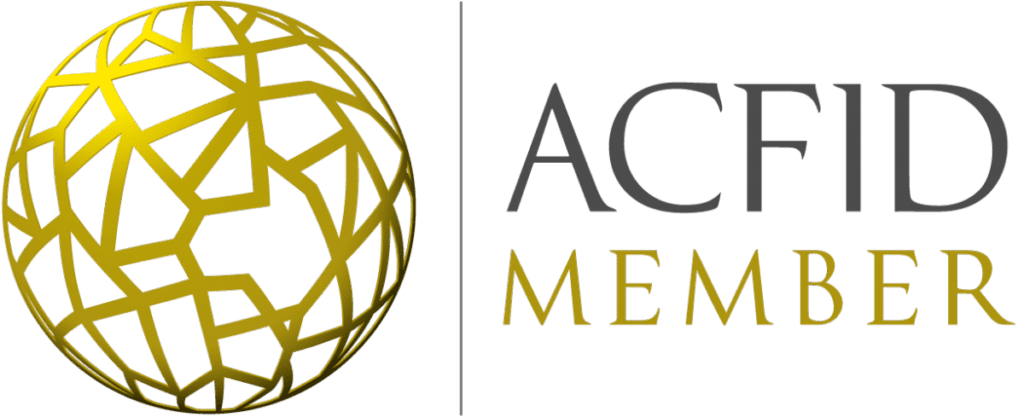Disability Inclusion Policy
1. Goals
The Diplomacy Training Program’s (DTP) vision is for a world in which all people have the freedom to advocate for the promotion and protection of human rights and are able to realise their human rights and achieve dignity. Persons with disability (PwD) are entitled to the full range of human rights; the UN Convention on the Rights of Persons with Disabilities (CRPD), which embodies both social and human rights models of disability, is particularly relevant to this policy.¹
DTP recognises that disability is the result of the impact of social attitudes and structures that constitute barriers to the full inclusion of persons with disability in all fields of life on the basis of equality with others. DTP is committed to the concept of inclusive equality that requires the removal of such barriers, including by ensuring accessibility in all aspects of its work and through the provision of reasonable accommodation to remove barriers in individual situations.
DTP acknowledges the goals, priorities and strategies for promoting and realising the rights of persons with disability must be developed with the participation of persons with disability and their representative organisations.
Through this policy DTP aims to:
- pursue the goal of inclusive equality through its training and other activities
- in collaboration with persons with disability and their representative organisations, build knowledge and awareness of internationally recognised human rights, including the Convention on the Rights of Persons with Disabilities (CRPD)
- contribute to the capacity of persons with disability and their representative organisations to claim their rights and combat discrimination
- apply these goals in DTP’s internal and external relationships and communications.
2. Scope
This policy applies to all who represent DTP or take part in DTP’s programs and activities. This includes, but is not limited to, DTP’s Board of Directors, staff, volunteers, interns, partners, trainers and others engaged in the work of DTP.
DTP is legally obliged to comply with various State and Federal laws, including the Disability Discrimination Act 1992 and the Anti-Discrimination Act 1977 (NSW). DTP also operates within a sectoral context that is shaped by the ACFID Code of Conduct. As an Australian NGO accredited by Australia’s Department of Foreign Affairs and Trade (DFAT), DTP is required to adhere to international standards such as the Universal Declaration of Human Rights and the Convention on the Rights of Persons with Disabilities.
DTP is committed to ensuring disability inclusion in all areas of the organisation. DTP will develop and implement disability-specific strategies to support the inclusion of persons with disability. It will include training and materials on the rights of persons with disability for human rights defenders and community advocates.
DTP applies the CRPD definition of disability. “Persons with disability include those who have long-term physical, mental, intellectual or sensory impairments which in interaction with various barriers may hinder their full and effective participation in society on an equal basis with others.”²
This policy operates in conjunction with DTP’s other policies and procedures, including its Code of Conduct, Child Protection Policy, Complaints Policy, Incident Reporting Guidelines and Procedures, Gender Policy, Whistleblower Protection Policy, and Protection from Sexual Exploitation, Abuse and Harassment Policy.
3. Guiding Principles
- Recognition of the rights of persons with disability and their right to participation in legislative, policy and other decisions affecting them are core development objectives;
- Persons with disability have the same right as others to make decisions about their own lives and to have those decisions respected;
- Persons with disability experience significant discrimination and disadvantage that requires action and resources to address and redress;
- The elimination of discrimination on the ground of disability requires the taking of positive measures that will ensure inclusion, accessibility and full participation to persons with disability;
- Persons with disability have diverse impairments and identities and intersectionality with Indigenous status, race, age, gender expression, age and poverty among other attributes, are key issues to be considered and addressed.
4. Implementation
DTP will:
- work with partners, trainers, alumni, disabled peoples organisations (DPOs), researchers and participants to analyse the specific barriers, perspectives and needs of all participants including those living with disability;
- ensure the involvement of DPOs and PwD in the development and delivery of DTP’s programs and program content on disability;
- provide reasonable accommodation to all those engaging with DTP in different capacities;
- make available its information, resources and training materials, whether in electronic or other formats, in accessible formats;
- communicate its commitment to promoting and protecting the rights of persons with disability to staff, volunteers, partners, trainers and participants;
- apply a disability lens to the management of its international and domestic programs and events and analyse and address disability issues in all phases of its program development and delivery; this will include endeavouring to ensure that persons with disability have access to and participate in all DTP’s programs;
- include in funding applications requests for specific provision to promote the participation of persons with disability, including for the provision of necessary supports and for making materials and training sessions accessible (for example through the provision of sign language interpretation or provision of material in accessible formats);
- seek the advice and input of partners working on issues of disability inclusion and equity in developing concept notes, planning program content and selecting program participants and trainers;
- integrate program content on discrimination and CRPD to build capacity of partners and community advocates to effectively challenge inequities and barriers impacting on persons with disability;
- reach out through DPOs, DTP partners and alumni to seek participation of people with disability in programs – as partners, trainers and participants;
- take appropriate measures to ensure that persons with disability have access to DTP’s programs. DTP will ensure that its program venues, accommodation and transport, as well as information and means of communication are accessible;
- ensure program risk assessments consider the risks facing persons with disability;
- use disability-inclusive monitoring, evaluation and learning approaches, including data disaggregation.
5. Monitoring and Review
DTP will:
- Monitor, evaluate and report on the implementation in promoting the rights of persons with disability through:
- gathering and reporting data on the number of people with disability participating in DTP’s courses
- reflecting and reporting on program content focused on the rights of persons with a disability
- Consult partners and program alumni with disability and seek input on strengthening disability inclusion
- Undertake an organisational disability inclusion audit on a three-yearly basis, in association with its DFAT accreditation processes.
6. Reviewing the policy
The Board of DTP will review the disability policy periodically, but at least every three years and/or at times when practice indicates the need for change.
The DTP Board of Directors adopted this policy on Disability Inclusion
Date of First Adoption: November 2021
Date for Renewal: November 2024
Glossary of Terms:³
1. Discrimination on the basis of disability “means any distinction, exclusion or restriction on the basis of disability which has the purpose or effect of impairing or nullifying the recognition, enjoyment or exercise, on an equal basis with others, of all human rights and fundamental freedoms in the political, economic, social, cultural, civil or any other field. It includes all forms of discrimination, including denial of reasonable accommodation” (CRPD Article 2).
2. Disability-inclusive development. Inclusive development ensures that marginalised groups actively participate and benefit from development processes and outcomes, regardless of their age, gender, disability, state of health, ethnic origin, sexual orientation, faith or any other characteristics. It seeks to address the deepening inequality and consequent lack of access to opportunities for those who are excluded from development gains and processes (adapted from Disability, Poverty and Development – A Vicious Cycle, DFID, 2000).
3. Accessibility “means taking the appropriate measures to ensure access to persons with disabilities on an equal basis with others, to the physical environment, to transportation, to information and communications including information and communications technologies and systems and to other facilities and services open or provided to the public, both in urban and in rural areas” (CRPD Article 9).
4. Reasonable accommodation “…necessary and appropriate modification and adjustments not imposing a disproportionate or undue burden, where needed in a particular case, to ensure to persons with disabilities the enjoyment or exercise on an equal basis with others of all human rights and fundamental freedoms” (CRPD Article 2).
Denial of reasonable accommodation constitutes discrimination if necessary and appropriate modifications and adjustments (that do not impose a “disproportionate or undue burden”) are denied and are needed to ensure the equal enjoyment or exercise of a human right or fundamental freedom (CRPD Article 2). Not accepting an accompanying person or refusing to otherwise accommodate a person with a disability are examples of denial of reasonable accommodation (General Comment No. 6, 2018).
5. Accessible formats refer to information available in formats such as Braille, easy reads, tactile graphics, large print, text to speech, oral presentations, electronic files compatible with screen readers, captioned and/or signed videos, icons and animations, 3D models etc.
Footnotes
- The text of the Convention may be found at UN Convention on the Rights of Persons with Disabilities
or [2008] ATS 12. CRPD documents in plain language and Easy Read versions can be found at:
https://www.ohchr.org/EN/HRBodies/CRPD/Pages/PlainAndERV.aspx - Convention on the Rights of Persons with Disabilities. Article 1
- Adapted from Disability and Gender Analysis Toolkit. CBM 2019



